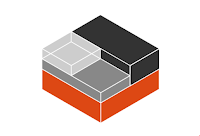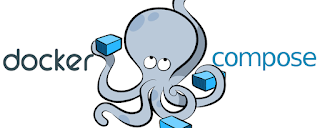Introduction
Discovering the Top 5 Docker Desktop Alternatives for Windows!
Developers across the globe have long relied on Docker Desktop as their go-to tool for building, deploying, and managing containerized applications on Windows. However, as the containerization landscape continues to evolve, so do the options available to developers. Whether you're seeking enhanced performance, additional features, or simply exploring alternative solutions, this article explores the top Docker Desktop alternatives for Windows. We'll dive into the key criteria for evaluating these alternatives and provide an overview of each option, equipping you with the knowledge to make an informed decision for your container development needs.Criteria for Evaluating Docker Desktop Alternatives
Before we go into the options, let's define the criteria we'll use to assess them. When weighing Docker Desktop alternatives for Windows, consider the following:
- Ease of Use: The alternative should offer a user-friendly interface and straightforward installation process.
- Performance: It should deliver efficient container execution and resource utilization, ensuring smooth application deployment and runtime.
- Features: Look for alternatives that provide a comprehensive set of features, such as container orchestration, networking, and storage options.
- Community Support: A vibrant and active community can contribute to the development, support, and availability of documentation and resources for the alternative.
- Compatibility: Consider the compatibility with Docker images, CLI (Command Line Interface), and existing Docker workflows.
#1 Podman
- Ease of use: Similar to Docker, but with some differences.
- Performance: Similar to Docker, but with some potential for improvement.
- Features: Fully compatible with Docker, plus some additional features.
- Community support: Active and growing community.
- Compatibility: Compatible with Linux, macOS, and Windows.
Official Site: podman.io
#2 LXD

- Ease of use: command-line interface and a graphical user interface.
- Performance: Can run multiple containers on a single host.
- Features: container features, including networking, storage, and security.
- Community support: Has a large and active community of users and developers.
- Compatibility: operating systems, including Linux, macOS, and Windows.
Official Site: linuxcontainers.org
#3 Rancher Desktop
- Ease of use: easy to use for beginners and experienced users alike.
- Performance: fast and efficient, even with large numbers of containers.
- Features: wide range of features for managing Docker containers and Kubernetes clusters.
- Community support: large and active community of users and contributors.
- Compatibility: Windows, macOS, and Linux.
Official Site: rancherdesktop.io
#4 MiniKube
- Ease of use: Easy to install and use, even for beginners.
- Performance: Can be slow for large clusters, but good for small clusters.
- Features: Supports most Kubernetes features, including pods, services, and deployments.
- Community support: Large and active community, with plenty of resources available online.
- Compatibility: Supports Windows, macOS, and Linux.
Official Site: minikube.sigs.k8s.io
#5 Docker Compose

- Ease of use: Easy to learn and use, with a simple YAML syntax.
- Performance: ability to run multiple containers in parallel.
- Features: support for networking, volumes, and health checks.
- Community support: Large and active community, with plenty of documentation and tutorials available.
- Compatibility: Windows, macOS, and Linux.
Official Site: docs.docker.com/compose/
Conclusion
Docker Desktop remains a popular and robust choice for
Windows developers looking to work with containers. However,
the evolving container ecosystem offers exciting alternatives that
can enhance your development experience and cater to specific project
requirements. By considering alternatives such as Podman, Kubernetes,
or the combination of Podman and K3s, you can unlock new possibilities,
improve performance, and align your container development workflow to your
exact needs


.png)


.png)
This is really Amazing!
ReplyDeleteWell, Docker is most popular Container, but this article is really good. I can now explore more platforms.
ReplyDeleteThanks buddy!